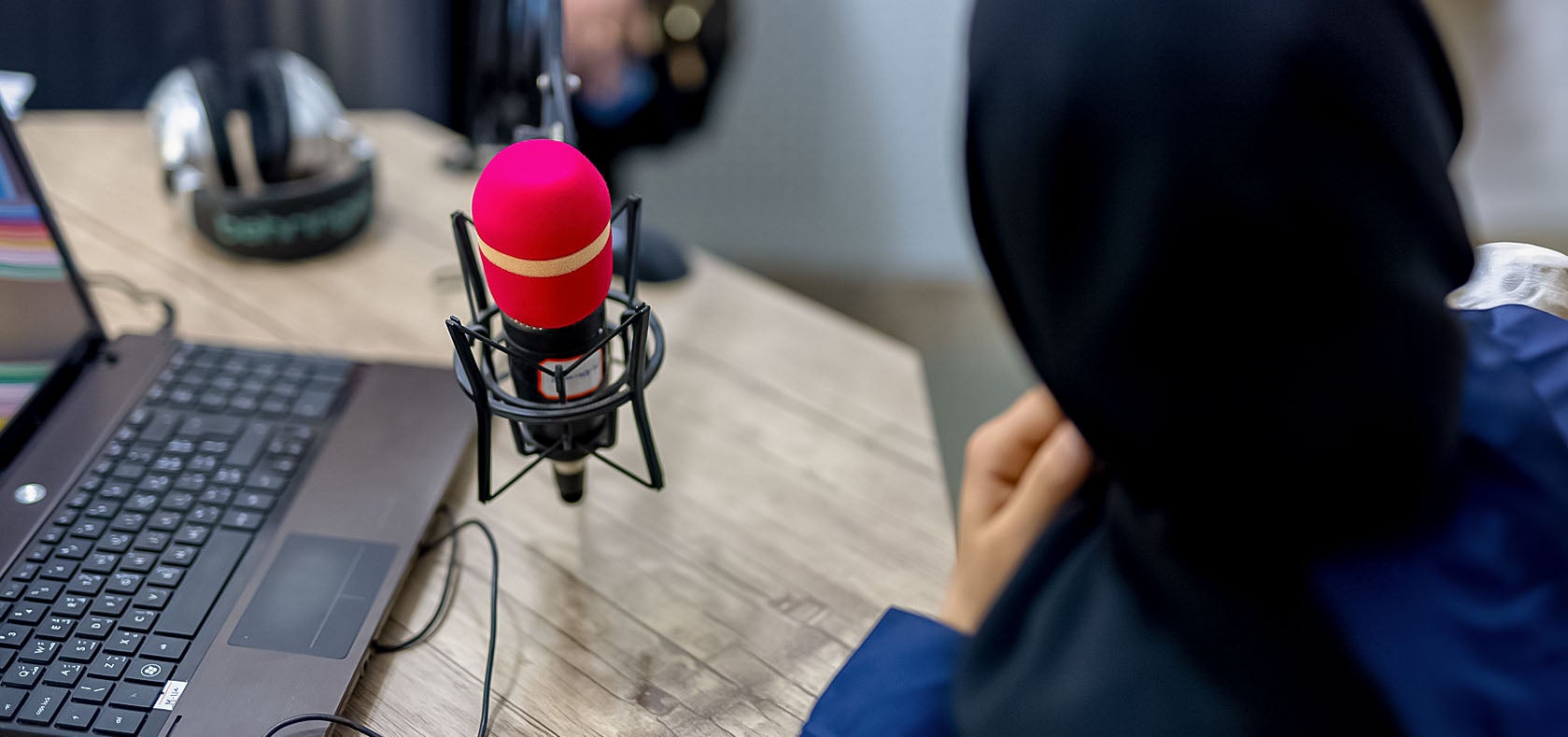In the words of Lina*: “Women want the right to make decisions, not just in their homes but in government and other spaces”
Date:

Lina* is a 26-year-old journalist from Farah who is part of a UN Women pilot programme training Women Community Volunteers to consult women across Afghanistan to discuss issues that matter to them and voice their needs, priorities and recommendations to the international community and de facto authorities (DFA). This work to amplify Afghan women’s voices is being supported by the European Union.

I studied journalism and have worked for seven years as a journalist, including five years before the takeover, in audiovisual media, as a reporter at a newspaper, and also at a radio station.
After the takeover, I took some space from my work for about a year. I haven’t faced any direct threats, but I was afraid because of the way the DFA were treating women.
I got involved with UN Women when I took a storytelling training [last September]. I learned a lot about how to do interviews and be a professional storyteller. I wrote a story about a former woman military officer for the After August website. This was an opportunity that I’ve used to learn more and do more.
After the training, I was hired to interview women following the earthquakes in Western Afghanistan in October. Then, at the end of 2023, I started working as a Woman Community Volunteer. I have interviewed a total of 20 women for two rounds of UN Women consultations.
The women who join these consultations really appreciate the chance to raise their voices and have someone listen to them. I remember one woman who was a teacher before the takeover and had a social advocacy foundation. She is a widow with two daughters to raise, but after the takeover and the restrictions on women, she lost her foundation and has no source of income. One of her daughters killed herself and that left her in a deep depression. But she was so happy to speak to me. She told me it was the first time in almost three years that someone was asking her about her life and feelings.
Just being able to speak to these women and give them the chance to raise their voices and reflect their feelings and desires makes me really proud.
Thankfully, I haven’t faced any challenges. Before starting this work, the UN Women Afghanistan Country Office gave us a training about what to do and what not to do if we face any challenges, and so we are very aware of possible situations.
As a woman raised in this society, l feel what these women feel through these restrictions and tough situations. These bans decrease women’s self-confidence and self-respect by relegating them to a corner of their home. I know what they’re going through, so it’s very important for me to raise their voices. I want to help women by writing reports and telling their stories, by raising their voices and reflecting their needs and their problems. And maybe, through this work, international organizations will hear them and give them a helping hand.
We need gender equality in Afghanistan. Women want to work shoulder-to-shoulder with men. Women want the right to make decisions, not just in their homes but in government and other spaces. They want an education. They want to work. They want their rights.
Our unclear future really leaves us disappointed, and I don’t know how long I will be able to keep helping and how long we will be able to keep living like this. We need to live a better life, especially as women.”
* Name and location changed to protect her identity.